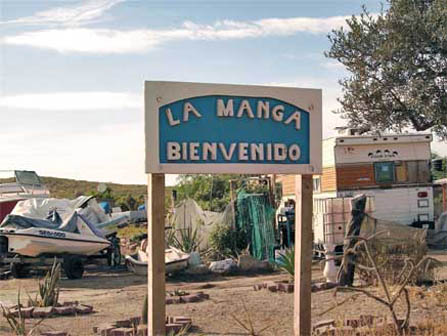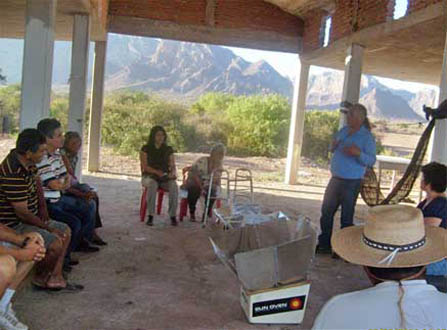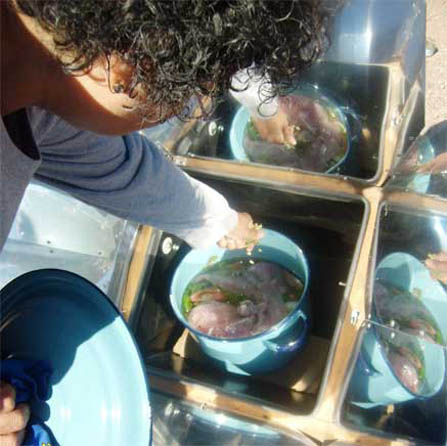Sonoran Community and University Collaborate on Solar Oven Installation
Photos and text by José Luís Juárez Ortega*
In spite of its proximity to the urban tourist areas of San Carlos, La Manga 1 in Nuevo Guaymas doesn't have potable water, electricity, a sewage system or healthcare centers.
GUAYMAS
A community dependent on fishing and tourism in this municipality on the Gulf of California recently chose to install solar ovens to improve the quality of life.
The decision arises from discussions with university people about the benefits of renewable energy for sustainable development.
Since February 2011, the town has devoted itself to a service project called "Feasibility Study of Renewable Energy Sources in the Community of La Manga 1, Guaymas."
The project proposes a community development strategy based on appropriate technologies. It originates in the energy lab of the Department of Chemical Engineering and Metallurgy at the University of Sonora (Unison) campus in Hermosillo.

A group of environmental activists in the community agreed to organize a workshop on solar oven construction.
A multidisciplinary working group made up of sociologists and chemical, civil, and industrial engineers initiated the collaboration.
The methodological model known as Participatory Action Research (PAR) has encouraged involvement of the population.
The goal is that the people of La Manga 1 will acquire the necessary knowledge and organize themselves in order to achieve self-sufficiency in the use of renewable energy, both in their homes and community-wide.
To accomplish this, a feasibility study was first done to determine how to use renewable energy in this location. Next, tests were run with both commercial solar ovens and those made from recycled materials.
A participatory development diagnosis was made in order to identify local needs and to outline the demographic, socioeconomic, and cultural situations present in the community, as well as to identify the current state of housing, services, safety and health.
The feasibility study results led to the meeting of a task force composed of both community appointed leaders and Unison’s multidisciplinary working group in order to discuss the town’s situation.
They noted that even though La Manga 1 is a community fairly close to the urban development of San Carlos, in the so-called "new" Guaymas, it lacks basic public services such as drinking water, electricity, drainage, and healthcare centers.
This translates into a poor quality of life for its inhabitants and it leads to the conclusion that the appropriate use of solar or wind energy technologies might assure at least some improvement in their lives.
As a result, a group of environmental activists from the community agreed to organize a workshop for building solar ovens with recycled material.
Based on that workshop, Unison’s multidisciplinary team is currently working on building solar oven prototypes and a solar water distiller that would be within reach of the community.

